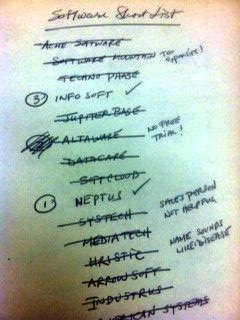
Google will track attendee whereabouts at the
Google I/O at Moscone Center. Some might find this kind of granular people data tracking very offputting, but Big Data is not going away, ever. In point of fact, it seems much more likely with the development and proliferation of more sensors and the additional data points, almost everything under the Sun will be fair game for tracking.
At a conference several years ago (admittedly a very tedious one) two employees were overheard planning their escape to a local shopping center. If they had been wearing sensors, perhaps all of their movements would have been recorded and management would have hard data about their play time when they were supposed to be at the conference. So, the question is what to do with the data, because bored employees might be indicating that part of the conference was wasted time for everyone, not just those two.
While this kind of people monitoring can appear far too Big Brotherish, some employees do try to submit
fraudulent timesheets, as was the case in Texas recently.
'The indictment also alleges that in order to personally profit from their fraudulent billings, Ramirez and Velasquez allegedly created payroll records from the fraudulent time sheet that they sent to Caring Touch’s payroll staff.' (Source:
7thspace.com)
The home healthcare company did nothing wrong, but two employees were charged with fraud after altering time records in order to receive payroll checks without having actually done the work. Well over 600 false and fraudulent claims were submitted, resulting in payments totaling $155,127.72. Texas Medicaid, Evercare, and Superior were the organizations that paid these exorbitant and illegally obtained funds.
So, even though there is much potential for the abuse of personal and employee data, time tracking and potentially even people tracking can be warranted in certain contexts.
Image Credit: Public Domain, Wikipedia







